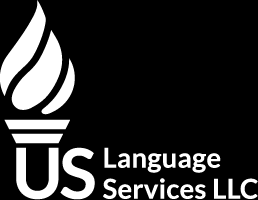What Are the Questions & Answers for the U.S. Citizenship Test?
On the day of your citizenship interview you will take a two-part naturalization test. The first half allows you to prove you can read, write, speak, and understand English.
The second half is a civics test in which you prove your knowledge of U.S. history and government. The questions and answers to the civics test will be provided in this guide. This exam is administered orally, meaning, the USCIS will read the question out loud to you.
NOTE: Any applicant aged 65 or older who has lived in the U.S. as a lawful permanent resident for at least 20 years will only be required to study 20 specific questions. In this guide, those questions are marked with an asterisk*. Those applicants will only be asked 10 of the 20 questions with an asterisk. Then, those applicants only have to answer 6 of the 10 correctly.
What are the questions and answers on the civics test?
In this guide we will include all 100 questions and the correct answers. The questions are organized into the following 3 categories.
- American Government (Questions 1-57)
- American History (Questions 58 – 87)
- Integrated Civics (Questions 88 – 100)
Section 1: American Government
A: Principles of American Democracy
Answer:
- Sets up the government
- Defines the government
- Protects basic rights of Americans
Answers:
- A change (to the Constitution)
- An addition (to the Constitution)
Answers: (Choose any of the following 5 options)
- Speech
- Religion
- Assembly
- Press
- Petition the government
Answer:
- Announced our independence (from Great Britain)
- Declared our independence (from Great Britain)
- Said that the United States is free (from Great Britain)
Answers: (Choose any 2 of the following 3 options)
- Life
- Liberty
- Pursuit of happiness
Answer:
- Capitalist economy
- Market economy
Answer:
- Everyone must follow the law
- Leaders must obey the law
- Government must obey the law
- No one is above the law.
B: System of Government
Answers: (Choose any of the following 6 options)
- Congress
- Legislative
- President
- Executive
- The courts
- Judicial
Answer:
- Checks and balances
- Separation of powers
Answer:
- Congress
- Senate and House (of Representatives)
- (U.S. or national) legislature
Answer:
- (Because of) the state’s population
- (Because) they have more people
- (Because) some states have more people
Answers: (Choose any 2 of the following 16 options)
- Secretary of Agriculture
- Secretary of Commerce
- Secretary of Defense
- Secretary of Education
- Secretary of Energy
- Secretary of Health and Human Services
- Secretary of Homeland Security
- Secretary of Housing and Urban Development
- Secretary of the Interior
- Secretary of Labor
- Secretary of State
- Secretary of Transportation
- Secretary of the Treasury
- Secretary of Veterans Affairs
- Attorney General
- Vice President
Answer:
- Reviews laws
- Explain laws
- Resolves disputes (disagreements)
- Decides if a law goes against the Constitution
Answers: (Choose any of the following 4 options)
- To print money
- To declare war
- To create an army
- To make treaties
Answers: (Choose any of the following 5 options)
- Provide schooling and education
- Provide protection (police)
- Provide safety (fire departments)
- Issue driver’s licenses
- Approve zoning and land use
C: Rights and Responsibilities
Answers: (Choose any of the following 4 options)
- Citizens eighteen (18) and older (can vote)
- You don’t have to pay (a poll tax) to vote
- Any citizen can vote. (Women and men can vote)
- A male citizen of any race (can vote)
Answers: (Choose any of the following 2 options)
- Serve on a jury
- Vote in a federal election
Answers: (Choose any of the following 2 options)
- Vote in a federal election
- Run for federal office
Answers: (Choose any of the following 6 options)
- Freedom of expression
- Freedom of speech
- Freedom of assembly
- Freedom to petition the government
- Freedom of religion
- The right to bear arms
Answers:
- The United States
- The flag
Answers: (Choose any of the following 6 options)
- Give up loyalty to other countries
- Defend the Constitution and laws of the United States
- Obey the laws of the United States
- Serve in the U.S. military (if needed)
- Serve (do important work for) the nation (if needed)
- Be loyal to the United States
Answers: (Choose any 2 of the following 10 options)
- Vote
- Join a political party
- Help with a campaign
- Join a civic group
- Join a community group
- Give an elected official your opinion on an issue
- Call Senators and Representatives
- Publicly support or oppose an issue or policy
- Run for office
- Write to a newspaper
Answer:
- Between eighteen (18) and twenty-six (26)
Section 2: American History
A: Colonial Period and Independence
Answers: (Choose any of the following 6 options)
- Freedom
- Political liberty
- Religious freedom
- Economic opportunity
- Practice their religion
- Escape persecution
Answer:
- American Indians
- Native Americans
Answer:
- Africans
- People from Africa
Answer:
- Because of high taxes (taxation without representation)
- Because the British army stayed in their houses (boarding, quartering)
- Because they didn’t have self-government
Answer: (Choose any 3 of the following 13 options)
- New Hampshire
- Massachusetts
- Rhode Island
- Connecticut
- New York
- New Jersey
- Pennsylvania
- Delaware
- Maryland
- Virginia
- North Carolina
- South Carolina
- Georgia
Answer:
- The Constitution was written
- The Founding Fathers wrote the Constitution
Answer: (Choose any of the following 4 options)
- James) Madison
- (Alexander) Hamilton
- (John) Jay
- Publius (Note: “Publius” was the collective pseudonym for Alexander Hamilton, James Madison, and John Jay)
Answers: (Choose any of the following 5 options)
- U.S. diplomat
- Oldest member of the Constitutional Convention
- First Postmaster General of the United States
- Writer of “Poor Richard’s Almanac”
- Started the first free libraries
B: 1800s
Answer:
- The Louisiana Territory
- Louisiana
Answers: (Choose any of the following 4 options)
- War of 1812
- Mexican-American War
- Civil War
- Spanish-American War
Answer:
- The Civil War
- The War Between the States
Answers: (Choose any of the following 3 options)
- Slavery
- Economic reasons
- States’ rights
Answers: (Choose any of the following 3 options)
- Freed the slaves (Emancipation Proclamation)
- Saved (or preserved) the Union
- Led the United States during the Civil War
Answer:
- Freed the slaves
- Freed slaves in the Confederacy
- Freed slaves in the Confederate states
- Freed slaves in most Southern states
Answer:
- Fought for women’s rights
- Fought for civil rights
C: Recent American History and Other Important Historical Information
Answers: (Choose any of the following 5 options)
- World War I
- World War II
- Korean War
- Vietnam War
- (Persian) Gulf War
Answer:
- Fought for civil rights
- Worked for equality for all Americans
Answers: (Choose any of the following 22 options) (Note: [USCIS Officers will be supplied with a list of federally recognized American Indian tribes.)
- Cherokee
- Navajo
- Sioux
- Chippewa
- Choctaw
- Pueblo
- Apache
- Iroquois
- Creek
- Blackfeet
- Seminole
- Cheyenne
- Arawak
- Shawnee
- Mohegan
- Huron
- Oneida
- Lakota
- Crow
- Teton
- Hopi
- Inuit
Section 3: Integrated Civics
A: Geography
Answers: (Choose any of the following 2 options)
- Missouri (River)
- Mississippi (River)
Answers: (Choose any of the following 5 options)
- Puerto Rico
- U.S. Virgin Islands
- American Samoa
- Northern Mariana Islands
- Guam
Answers: (Choose any of the following 13 options)
- Maine
- New Hampshire
- Vermont
- New York
- Pennsylvania
- Ohio
- Michigan
- Minnesota
- North Dakota
- Montana
- Idaho
- Washington
- Alaska
Answers: (Choose any of the following 4 options)
- California
- Arizona
- New Mexico
- Texas
Answer:
- New York (Harbor)
- Liberty Island
- Note: [Also acceptable are New Jersey, near New York City, and on the Hudson (River).]
B: Symbols
Answer:
- Because there were 13 original colonies
- Because the stripes represent the original colonies
Answer:
- Because there is one star for each state
- Because each star represents a state
- Because there are 50 states
C: Holidays
Answers: (Choose any 2 of the following 10 options)
- New Year’s Day
- Martin Luther King, Jr. Day
- Presidents’ Day
- Memorial Day
- Independence Day
- Labor Day
- Columbus Day
- Veterans Day
- Thanksgiving
- Christmas
Will I need any documents for the civics test?
You don’t need any documents specifically for the civics test. The purpose of the test is that you will have the above questions and answers memorized so that you don’t need written help.
However, as noted at the beginning of this guide, your civics test will take place on the same day as your citizenship interview. For that interview you’ll need all the documents required to go along with your N-400, Application for Naturalization. Some common documents needed for the N-400 are a copy of your green card, marriage certificates, or death certificates.
Should my documents be translated into English?
Yes, according to USCIS, if you submit a document with information in a foreign language, you must also submit an English translation.To guarantee that your naturalization application is processed quickly, it helps to use a certified translation.
Some documents that commonly need to be translated for immigration purposes include:
- Criminal records
- Birth certificates
- Military service records
- Marriage certificates
- Divorce decrees
- Academic transcripts
You can order a certified translation of these documents from our online store:
Order Your Certified Translation
U.S. Language Services is not a law firm; its content should not be taken as legal advice. For specific legal concerns, please consult a licensed attorney. Similarly, financial information on our site is for informational purposes only, not financial advice. Consult a certified financial advisor or tax professional for advice tailored to your situation.
By accessing U.S. Language Services, you acknowledge that it does not provide legal or financial advice. You agree not to rely on its content as such. U.S. Language Services and its contributors bear no liability for any inaccuracies, losses, or damages resulting from the use of information on our site.
Guaranteed Acceptance
All our certified to English translations are accepted by the USCIS. Our translations follow the guidelines established by the USCIS and are also accepted by educational institutions.
Most Requested Documents
FAQs
You can order most translations 24 hours a day, 7 days a week through our online store. For large projects (more than 20,000 words or 50 pages), please request a quote.




